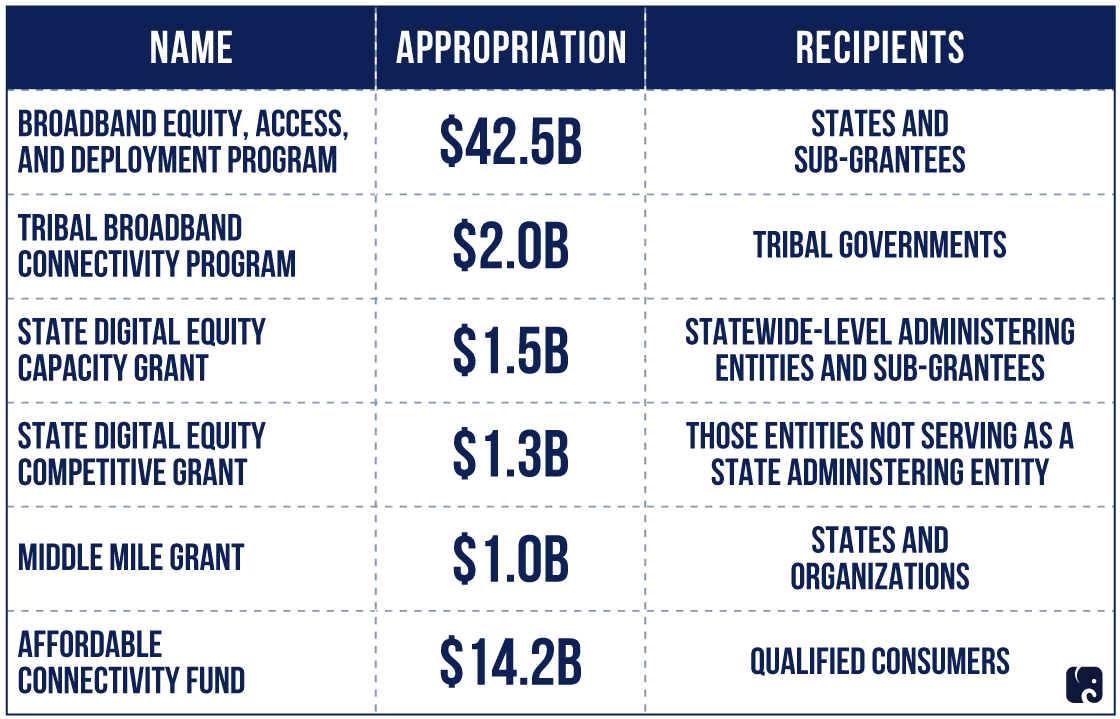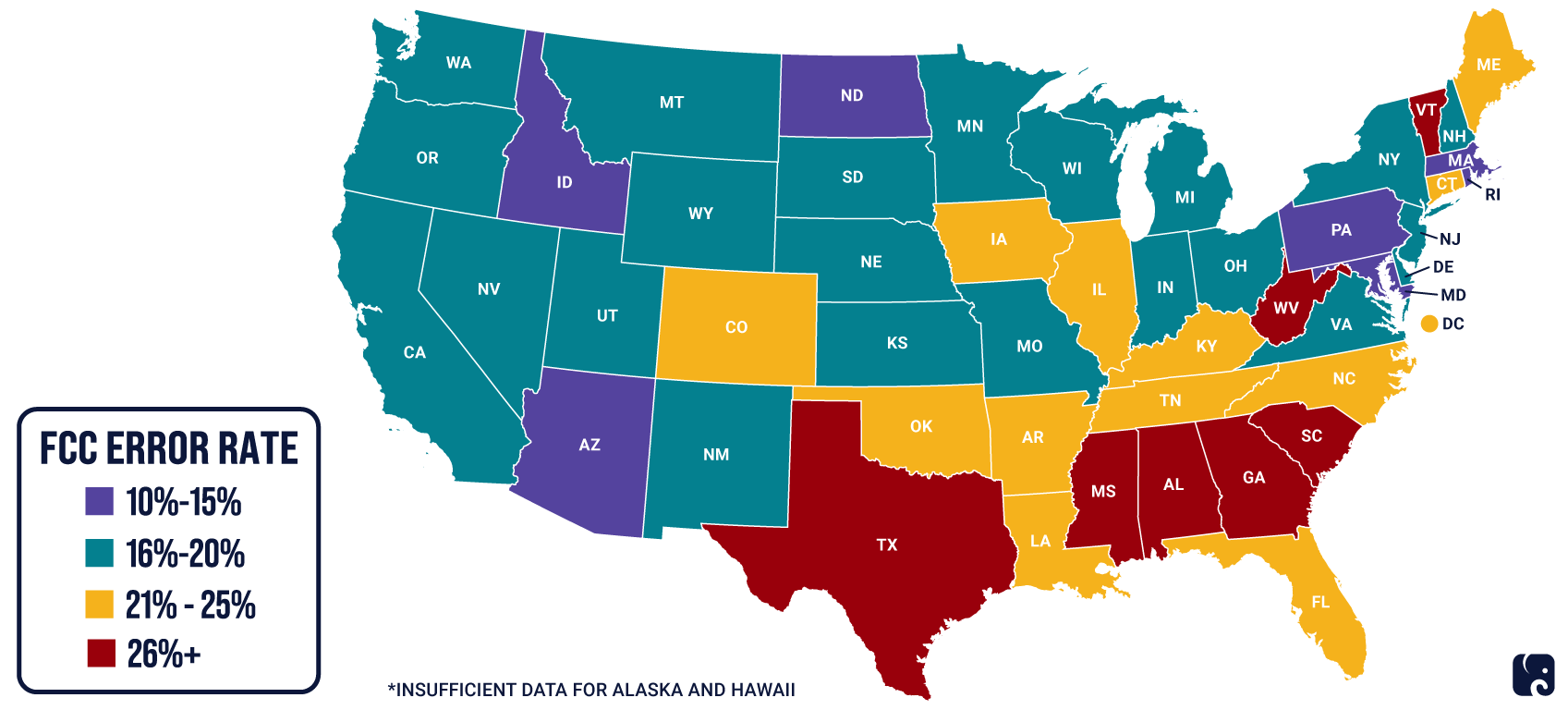Accurate Broadband Maps Can Help Bridge The Digital Divide
KEY TAKEAWAYS
- FCC broadband availability maps have been plagued with inaccurate data and have overstated existing coverage.
- The FCC appears to overstate coverage in every state, with an average 21% false positive rate across the U.S.
- The Infrastructure Investment and Jobs Act authorized six different grants and programs to help bridge the digital divide and allocated more than $60 billion toward this goal.
There has been bipartisan interest in closing the “digital divide” for homes that lack access to high speed internet. The Infrastructure Investment and Jobs Act authorized six different grants and programs to help bridge the gap and allocated more than $60 billion toward this goal.
Broadband Programs in Infrastructure Law

Fixing the maps
For states and other recipients to spend this money most effectively, they need an accurate understanding of what areas are truly “unserved” with broadband access. The Federal Communications Commission is responsible for publishing maps of broadband availability, but its current map is plagued with inaccuracies. It relies on self-reported data from providers and measures broadband availability by census block. If even a single address in a census block has access to broadband, the entire block is considered served. This is a particular problem in rural areas, which have large census block areas. As a result, the current map significantly overstates broadband coverage.
In March 2020, Congress passed the Broadband DATA Act to help fix this problem. The act requires the FCC to create maps showing the availability of fixed and mobile broadband service across the country and identify areas that are unserved and underserved. It also requires the FCC to use more granular and precise data to develop these maps. The map must be posted online so people can search by address, provider, state, type of service, and other factors to see coverage in their area or across the country. Congress provided the FCC with $98 million to complete that effort.
FCC Over-Reporting by State

Despite promises from FCC Chairwoman Jessica Rosenworcel in March 2020 that the FCC could “radically improve” the maps “within three-to-six months,” the maps remain incomplete, and the FCC is now indicating they may not be complete until next year. FCC Commissioner Brendan Carr has criticized the delay, saying, “there is a lack of clarity” from the commission’s chairwoman “on when Congress can expect these maps to be delivered.” In her recent confirmation hearing before the Senate Commerce Committee, Rosenworcel admitted the current maps “stink” and have a “whole lot” of flaws that systematically overstate coverage.
Earlier this year, a group of researchers examined how much the maps overstate coverage by manually checking availability at more than 58,000 addresses against FCC data. They estimated at least 42 million Americans do not have access to broadband, nearly triple the 14.5 million the FCC has claimed lack access. Overall, the researchers found an average 21% false positive rate across the U.S., where the FCC reports service is available but manual checks indicate it is not. Some states were even higher, including Alabama and Texas, both with an FCC error rate of 28%, and West Virginia with an error rate of 36%.
Senate republicans press the issue
In March, Senators Roger Wicker and John Thune, along with two House members, sent a letter to Rosenworcel expressing their alarm at the delay in completing the maps. They wrote: “Any delay in creating new maps would delay funding opportunities for unserved households, meaning they will have to wait even longer to access the economic and social opportunities broadband provides.”
The same month, Senator Wicker also sent a letter to Commerce Committee Chair Maria Cantwell requesting the committee hold an oversight hearing to “discuss the FCC’s plans and timelines for developing new maps.” Despite the request, and the FCC’s ongoing delay in producing the maps, the committee has yet to hold a hearing. Senator Wicker has said that Republicans will continue to prioritize this issue: “as the COVID-19 pandemic has shown, access to connectivity is critical to participating in everyday life … Congress cannot afford to wait or to permit the FCC to get this wrong.”
Next Article Previous Article
